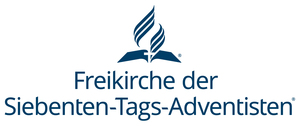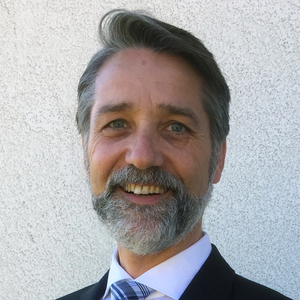In commemoration of the one hundredth anniversary of the end of the First World War the Seventh-day Adventist Church in Germany adopted the declaration "The Audacity of Peacemaking" ("Mut zum Frieden"). It was published in the February 2018 issue of the church magazine "Adventisten heute". In the statement the leadership of the Adventist Church recommends its members not to participate directly or indirectly in a war.
The declaration begins with the experience: "When a war ends it does not mean that peace begins". This is a lesson learned from the First World War, which was only the prelude to modern warfare. With cyber war, drone attacks, autonomous weapon systems, threats from NBC weapons and global terrorism the way in which wars are waged today has once again changed dramatically. The lines of conflict and warring parties are often no longer clearly discernible.
No just war
In remembrance of the end of the First World War on 11 November 1918 and in view of the new potential dangers, the leadership of the Seventh-Day Adventist Church in Germany wants to remind of its Christian-Adventist stance, as it did in its statement "Guilt and Failure" in 2014. It should be borne in mind that war is not just. "Every military conflict is driven by open and hidden interests that supersede the pure pursuit of justice." The fate of the people in conflict areas is often of secondary importance. For this reason, the committees of the then West German and South German Unions of the Seventh-Day Adventist Church already stressed in December 1983: "Today we reject war in any form." The threat of war and war itself create fear and lead to a continuous arms race, so that peace is constantly threatened. But also, excessive nationalism with its aggressive demarcation from other nations stirs fear and threatens peace. Furthermore, the industrial production of arms is an important economic factor.
Ambassadors of Peace and Reconciliation
The statement further highlights: "Jesus Christ called his followers to be peacemakers". Where people live in peace with God, they also seek peace with men; for peace is indivisible and permeates all aspects of life. For this reason, the declaration of 2014 by the leadership of the Seventh-Day Adventist Church in Germany on the occasion of the outbreak of the First World War 100 years ago also states: "We believe that by acting as ambassadors of peace and reconciliation in their surroundings the followers of Jesus apply the advice of the Holy Scriptures best."
No voluntary service in the German Armed Forces (Bundeswehr)
Therefore, the Seventh-Day Adventist Church recommends its members and its Adventist Youth "not to participate either directly in a war by voluntarily servicing in the German Armed Forces or indirectly by helping in the preparation of a war by participating in weapons production and its accessories as well as in information technology". Since the termination of compulsory military service in Germany in 2011, the German Armed Forces offer incentives to volunteer such as vocational training or academic degree. "Our church encourages no one to join the military because of the non-combatant basic idea of the Bible...", Pastor Ted N. C. Wilson, President of the Adventist World Church, is quoted. He points out that the Seventh-day Adventist Church has never given up its "historical testimony for peace and non-combatant service" since its founding.
Peacemakers begin in their own backyard
"To establish peace begins with the human relations of one's own surroundings and continues by taking on a wider social responsibility", so the statement by the leadership of the Seventh-day Adventist Church in Germany. The commitment to religious freedom, the fight against poverty through education, the preservation of health through hospitals and health education, support for quality of life through the service of the Adventist Development and Disaster Relief Agency (ADRA) and the Adventist Welfare Association (Advent-Wohlfahrtswerk AWW) also contribute to peace. Reconciliation, forgiveness, peace and justice only flourish on the basis of non-violence; just as Jesus Christ has demonstrated with his life and death. Therefore, the members of the Seventh-day Adventist Church are called upon to exercise their responsibility in this world without violence. Because of the Adventists believe that with Jesus' secondary coming the Kingdom of Peace of God "comes upon us", they should approach this Kingdom of Peace already today through their behavior.
An almost unanimous decision
The declaration "The Audacity of Peacemaking" ("Mut zum Frieden") was approved and released for publication with only one vote against during the annual meeting of the 51 member committee of the Seventh-day Adventist Church in Altena/Westphalia, Germany, on 4 December 2017. The committee was chaired by Pastor Werner Dullinger (Ostfildern, near Stuttgart), President of the South German Union, and Vice Chairman Pastor Johannes Naether (Hannover), President of the North German Union of the Seventh-day Adventist Church. Voting members of the committee are the members of the two Union committees. There are approx. 35,000 Seventh-day Adventists in 558 churches in Germany.
Non-combatants already in the American Civil War
According to Pastor Holger Teubert, head of the Department of Conscientious Objection to military service and peace of the Seventh-day Adventist Church in Germany, the Adventist Church was organized during the American Civil War (1861-1865). At that time there were only 3,500 Adventists who all lived in the Union States (northern states) of the USA. They were firm opponents of slavery. However, due to their Christian conviction, they refused to end slavery by force of arms. The Union government recognized them as "non-combatants", and conscripted Adventists were able to perform their duty as unarmed non-combatants in the medical service. But it happened that Adventists were refused this right by subordinate officers and were sent against their will to the fighting troops. Those who refused to take up the weapon were threatened with a court martial and execution. In such a situation, it was left to the personal conscience of the person to decide whether he would obey the orders of his superiors.
Holding on to the non-combatant position during World War I - except in Germany
Teubert explained that this attitude towards military service still characterizes the Adventists today. During the First World War, the Adventist church leadership in the USA, Great Britain and other countries continued to stand by the non-combatant position. In England, about 130 conscripted Adventists performed non-combatant military service. Some of them were sent to the infamous Dartmoor prison, where they suffered severe abuse. In Russia, about 500 Adventists were conscripted into the army. Most of them were non-combatants. About 70 of them were sent to prison or labour camps for their refusal to take up arms.
In a circular dated 2 August 1914, the Adventist Church leadership in Germany and Austria-Hungary, however, recommended to their conscripted members "to fulfil our military duties joyfully and heartily", "to make use of arms" and to also "perform military service on the Sabbath". Not all Adventists agreed with this attitude. However, those who refused to take up arms had to face harsh consequences. Pastor Teubert reported that of the 20 known Adventists who were sentenced to confinement in Germany during the First World War, five died in prison or soon after their release due to mistreatment.
However, in 1920 the responsible German church leaders withdrew and regretted their declaration on military service, according to Teubert. Nevertheless, the German leadership revisited the issue in its statement "Guilt and Failure" ("Schuld und Versagen") in 2014 on the occasion of the outbreak of the First World War 100 years anniversary. The Church agreed that the then leadership "did not live up to its responsibility towards the churches and wrongly accused church members who disagreed with their opinion and held on to the non-combatant standpoint" of 'cessation' and in some cases even had them prosecuted by state authorities". The Church leadership apologized to the "children and descendants" of the at that time unjustly accused for their "failure" in the war: "We have learned from our painful history that God's children are called to be people of peace and to reject all forms of violence against innocent people."
Civilian service and construction soldiers
Since there is no noncombatant medical service in the Federal Republic of Germany, the West German leadership of the Seventh-day Adventists recommended to their conscript members to make use of their right of conscientious objection to military service and to do community service. According to Teubert, almost all conscripted Adventists had done so. In the communist German Democratic Republic (GDR) there was no civilian service, but only the possibility of serving as non-combatant construction soldiers. Most of the conscripted Adventists served as construction soldiers, and as a consequence suffered a number of professional disadvantages.
The declaration "The Audacity of Peacemaking" can be downloaded on the Internet at:
http://ow.ly/v2BK30ia5LK
The declaration of 2014 "Guilt and Failure" is available at:
http://ow.ly/jnp830ia5p4



